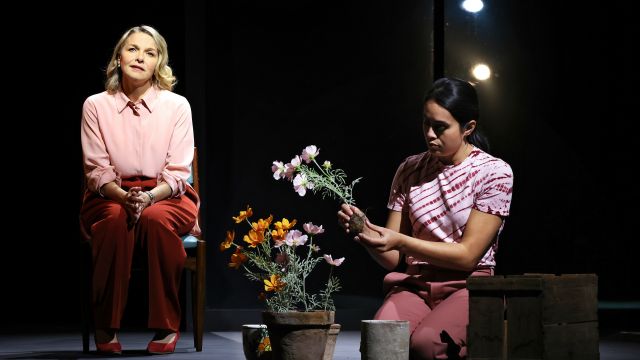Julia
Joanna Murray-Smith took on some heavy responsibilities when agreeing to write this play – responsibilities to the subject, the theme, the nation – and to herself as a writer. It is never easy to create a piece of theatre about someone who is living, especially when that
‘someone’ is now so well-known on the ‘world stage’, someone whose words have resounded internationally. Someone like Australia’s first, and, unfortunately, only, female Prime Minister. Someone like Julia Gillard.
But Murray-Smith is a wise, astute playwright. She knows how to manipulate words and characters. She does her research thoroughly – and always finds an ingenious “way in”. As she has done in this clever theatrical insight into the woman whose remarkable personal and political achievements were overshadowed by ingrained chauvinism, sexism, and misogyny.
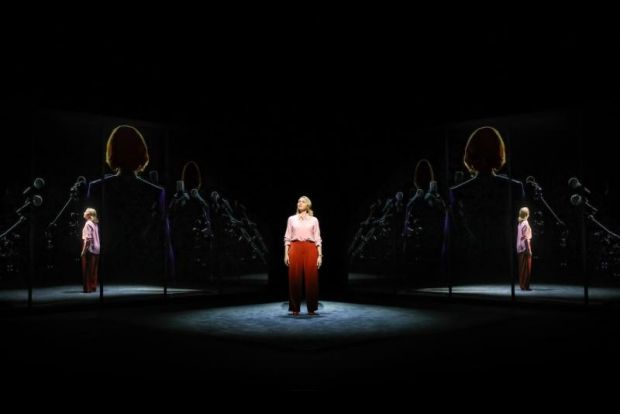
Murray-Smith’s play pinpoints events and experiences that shaped her subject’s interest in injustice and the law. Stories her father told of badly planned mining operations and their effect on the community – like the loss of 45 miners in the fiery underground explosion of the Six Bells colliery in Abertillery in 1960, just a year before Gillard was born. It brings her to Australia as a five-year-old and touches on her schooling in Adelaide, her growing political awareness, and her gritty determination to stick to her personal decisions. Then it takes her into the law, and politics – and a male dominated parliament.
Yet the play has a lightness that belies the political and social weight that it carries. That’s the skill of a good playwright. To take the research – and the characters – and shape them into a theatrical experience that’s engaging but still lands a strong punch. The strong punch was always going to be Gillard’s misogyny speech – getting to it creatively with truth and sincerity and humour took special skill, which Murray-Smith has demonstrated time and time again.
Putting it onto the stage was another thing – and who better to do it than other women! Enter intuitive director Sarah Goodes and talented performer Justine Clarke. Together they bring Murray-Smith’s interpretation of “Julia” to the stage – a big stage, made to appear even larger and more introspective by designer Renee Mulder, who wraps it in a high diagonal of glass that frames at times, mirrors at others, or merges reflections with ghosted videoed images (Susie Henderson) of grassland or flowers or people.
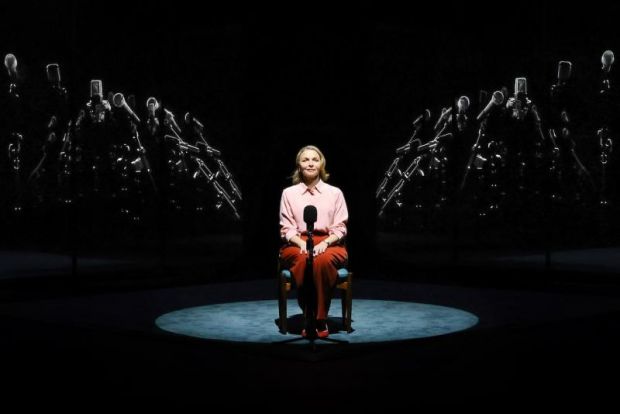
At first it almost dwarfs Clarke, but as she moves, and Alexander Berlage’s lights cunningly follow her, the glass encompasses the action, the reflections inferring the complexity of the character she is portraying, the intensity of her beliefs … and her feisty fortitude. Clarke presents a character who is contained and disarming, especially when she transforms to the very young Julia telling her mother she isn’t interested in growing up to be a mother, or the high school Julia passionately refuting arguments in a debate.
Where Murray-Smith has used actual quotations, especially from Julia the politician, Clarke changes her accent, cleverly implying the real Julia without actually impersonating. It’s a difficult device, but one she handles most effectively.
Clarke also maintains an energy that implies the drive and momentum of her character – an energy that sustains her through ninety minutes on stage, and a stirring delivery of the famous “not now, not ever’ speech. The lead into that celebrated ‘ten minute’ response to Tony Abbott’s goading is another effective piece of writing and direction.
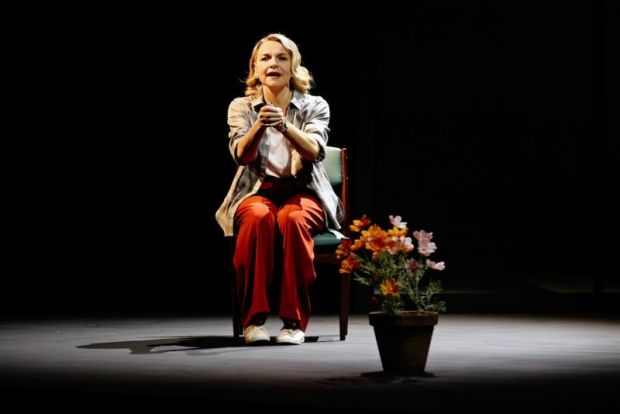
Clarke’s Julia ‘chats’ to the audience as she sits in front of a mirror and carefully pins up her hair in preparation for putting on an auburn wig. Each twist of the hair and placement of the hairpin becomes a step toward that legendary moment in question time.
As she puts on the wig, and slips into a blue jacket, she also slips smoothly into the woman who at last responded to the disrespect and derision that had dogged her through three years as Prime Minister – criticism to which she had refrained from reacting until that moment.
Clarke delivers the speech with all the right pauses, all the right changes in timbre, all the right, tight control. It’s a fitting end to the play – except that the play goes on for a few minutes more. Perhaps to give some in the audience time to recall their original response. Perhaps to give others, hearing it in its entirety for the first time, a chance to realise its full impact.
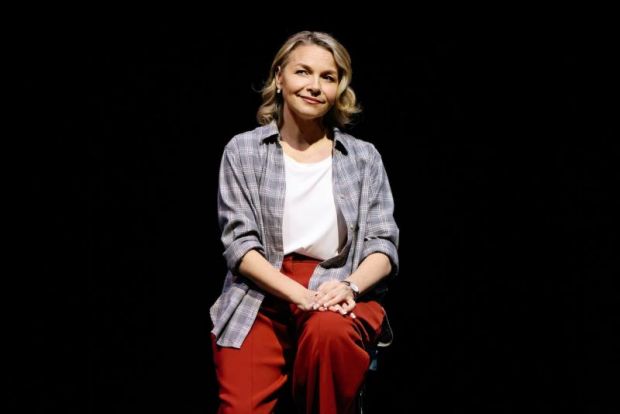
Perhaps to give Jessica Bentley who has been Clarke’s silent companion on the stage – changing small props, handing Clarke a hand towel or a bottle of water, appearing as one of the ghostly figures in the glass – a chance to reach out to the audience with a gentle, challenging question.
This is a play that was carefully and sensitively conceived. Goodes has directed with similar care and sensitivity, for both the actor … and the person she portrays.
Carol Wimmer
Photographer: Prudence Upton
Subscribe to our E-Newsletter, buy our latest print edition or find a Performing Arts book at Book Nook.

